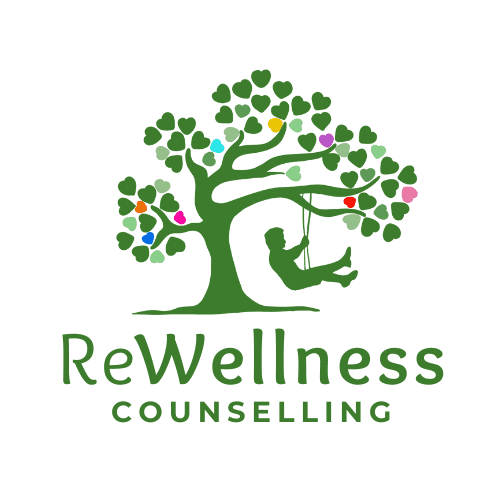

When conversations break down:
Rebuilding communication between parents and children
In any family, communication forms the heart of the relationship. It’s how we express love, build trust, set boundaries, and solve problems. But what happens when that communication breaks down, when a once-chatty child starts to withdraw, when every conversation turns into conflict, or when silence fills the space where connection used to live?
At ReWellness Counselling, we work with many families who are struggling with parent-child communication issues. Parents often feel shut out and helpless, while children feel misunderstood, unheard, or overwhelmed. Over time, this disconnect can cause emotional distance, family tension, and lasting strain on the parent-child bond.
What Causes Communication Breakdowns?
Communication problems don’t happen overnight. Often, they build slowly, through patterns that go unnoticed or unspoken. Here are some common reasons we see communication falter between parents and children:
1. Developmental Shifts
As children grow, their emotional and social needs evolve. A child who once needed constant reassurance may suddenly crave independence. Adolescents, in particular, often pull away from parental figures as part of their development. This isn’t a rejection, it’s a reshaping of how they relate to the world. But without understanding, it can feel deeply personal to parents.
2. Stress and Life Events
Major life events, such as divorce, bereavement, moving house, or illness, can disrupt a family’s emotional balance. When children don’t feel safe or in control, they may stop sharing. Likewise, when parents are stressed, they may become more reactive, distracted, or unavailable.
3. Unspoken Emotions
Many families struggle to talk openly about difficult emotions. Anger, sadness, fear, or shame can become “off-limits” topics, leading to emotional suppression. Children may stop expressing themselves if they feel dismissed or punished for how they feel.
4. Unrealistic Expectations
Sometimes, parents and children operate from entirely different assumptions. A parent might interpret a child’s silence as rudeness, while the child may simply be feeling anxious or overwhelmed. Without clear and compassionate communication, misunderstandings quickly take root.
5. Trauma or Conflict History
Families that have experienced trauma, abuse, or longstanding conflict often carry unhealed wounds that impact how they relate to one another. Trust may be fragile, and even small disagreements can feel emotionally unsafe.

How Counselling Can Help
At ReWellness Counselling, we work with children, teenagers, parents, and whole families to repair broken communication and rebuild healthy, secure relationships.
Here’s how we approach it:
Understanding the Root Cause
Our first step is always to explore what’s really going on beneath the surface. Is there a recent change in your family’s life? Is your child dealing with anxiety, bullying, or identity concerns? Is a parent feeling unsupported or burned out? We create a non-judgemental space where all voices can be heard and explored.
Building Emotional Language
Many children struggle to express how they feel, not because they don’t want to, but because they don’t have the tools. We help children develop the vocabulary to identify, name, and communicate their emotions. We also support parents in learning to validate those emotions, even when they’re difficult to hear.
Strengthening Listening Skills
Good communication starts with good listening. We help parents and children practise active listening, really hearing one another without interruption, correction, or defensiveness. These skills can transform everyday interactions and reduce conflict.
Repairing and Reconnecting
Every relationship has moments of rupture. What matters is how we respond to those ruptures. Through guided conversations and therapeutic exercises, we support families to apologise, forgive, and reconnect after misunderstandings or arguments.
Equipping Families with Tools
We don’t just talk, we teach practical strategies families can use at home. These might include calm-down plans, communication prompts, journaling, or conflict-resolution techniques tailored to your family’s unique needs.
The Impact on Wellbeing
When communication breaks down, everyone in the family feels it. Children may experience anxiety, depression, behavioural issues, or school difficulties. Parents may feel guilt, powerlessness, or anger. Even siblings and other relatives can be affected by the emotional tension.
The longer the disconnect remains, the harder it can feel to bridge the gap but it is possible. The fact that you’re reading this blog already shows a commitment to change, and that’s the first step.


You’re Not Alone and It’s Not Too Late
It’s easy to feel like you’ve failed when communication with your child breaks down. At ReWellness, we want to remind you: it’s never too late to rebuild connections. Families are incredibly resilient. With time, support, and intention, things can get better.
If your family is struggling to communicate, you don’t have to figure it out alone. Whether your child is 7 or 17, we’re here to walk beside you.
Get in Touch
Based in Broadstone, Poole, with trusted affiliate counsellors across Dorset
Specialising in counselling for children, teenagers, and families
Confidential, child-centred, and trauma-informed approach
Let’s help your family find its voice again.
Visit www.rewellness.co.uk or contact us directly to book a session.

Written by ReWellness
More From This Category
ADHD & School Refusal: Understanding the Hidden Struggles Behind “I Can’t Go”
ADHD & School Refusal: Understanding the Hidden Struggles Behind “I Can’t Go” School refusal is one of the most distressing challenges a parent can face. When a child with ADHD suddenly can’t face going to school, it’s easy to assume they’re being difficult...
ADHD & School Refusal: Understanding the Hidden Struggles Behind “I Can’t Go”
ADHD & School Refusal: Understanding the Hidden Struggles Behind “I Can’t Go” School refusal is one of the most distressing challenges a parent can face. When a child with ADHD suddenly can’t face going to school, it’s easy to assume they’re being difficult...
ADHD & School Refusal: Understanding the Hidden Struggles Behind “I Can’t Go”
ADHD & School Refusal: Understanding the Hidden Struggles Behind “I Can’t Go” School refusal is one of the most distressing challenges a parent can face. When a child with ADHD suddenly can’t face going to school, it’s easy to assume they’re being difficult...
0 Comments